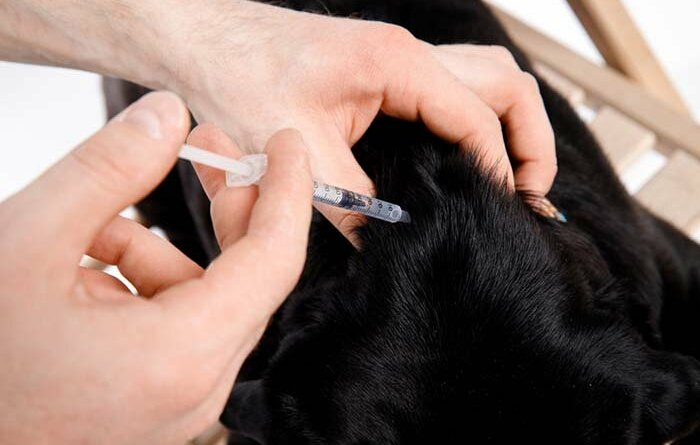Dog Diabetes Cost and What to Expect – Top Dog Tips
According to the 2016 State of Pet Health Report from Banfield, diabetes in dogs has risen by 79.7% since 2006. This is the equivalent of going from 1 in 500 dogs, to 1 in 100 dogs developing diabetes in their lifetime.
Caring for a diabetic dog can become difficult for a pet owner, and it can also be expensive. Here is some important information on the two types of diabetes in dogs and how much it can cost to treat a dog with this disease.
Types of Canine Diabetes & Symptoms
There are two types of diabetes in dogs; Type 1 and Type 2. Both types of diabetes are considered an endocrine disorder.
- Type 1 Diabetes is when the body is unable to produce enough insulin to regulate the animal’s blood sugar. Insulin-deficiency is the most common type of diabetes and occurs when the cells in the pancreas (responsible for making insulin) are destroyed.
- Type 2 Diabetes occurs when other hormones in the dog’s body prevent the insulin from working correctly. This problem is most often a result of excess body fat.
Symptoms of canine diabetes include excessive thirst, excessive urination, excessive appetite, rapid weight loss, lethargy, poor coat quality, seizures, and cataracts.
The Average Cost of Managing Canine Diabetes
When caring for a diabetic dog, your costs will vary. Generally speaking, pet owners can expect to spend between $43 and $231 per month on diabetes related care alone, not including the cost of dog food and emergency vet visits.
The average cost of managing canine diabetes will be determined by the type of diabetes your pet has been diagnosed with, as well as the dog’s size, overall health, medical history and the region you live in. The type following prices is an average estimate.
Insulin: $20-$90
Because of the insufficient amount of insulin in your dog’s blood, you will be required to give your pet insulin injections after each meal (once or twice daily). The amount of insulin needed will depend on your dog’s weight and the severity of the disease. Monthly costs of insulin can run from 20 to 90 dollars.
Syringes: $8-$16
To inject your dog with insulin you will need clean needles for infection prevention. These can range from 8 to 16 dollars each month.
Glucose Meter: $20-$500
Glucose meters measure the amount of sugar in your pet’s blood, which is imperative to giving the correct dosage of insulin to your dog. These units range in price from 20 to 500 dollars. Glucose testing can also be done at your veterinarians, but there will also be a charge, so most pet parents opt to purchase their own supplies for in-home testing.
Test Strips (Lancets): $5-$15
To test your dog’s blood sugar (either via blood or urine) you will need test strips. The cost of this product will run from 5 to 15 dollars each month.
Diabetic Dog Food: $40-$100
Kibble that has been specially formulated for diabetic dogs can be costly and will be dependent on the size of your pet and the brand you choose to feed it. It will also depend on whether you purchase the food directly from your vet (more costly), a pet store, or online. For example, Hill’s Prescription Diet for Digestive/ Weight/Glucose Management costs about 80 dollars for a 27.5-pound bag.
Veterinary Care: $75-$250
Diabetic dogs will require more veterinary care, at the very least to have the insulin prescription renewed. A poorly managed dog with diabetes is at a higher risk of emergencies such as hypoglycemia. These costs can add up very quickly and will be dependent on whether your vet charges an office visit fee on top of treatment. Veterinary care can be from 75 to over 250 dollars.
READ NEXT: Dog Diabetes Diet – Vet’s Guide on What to Feed a Diabetic Dog




